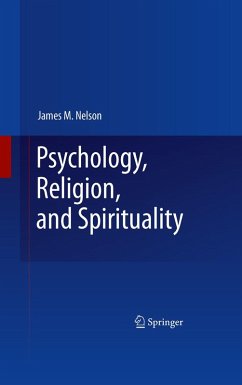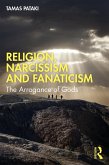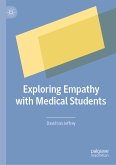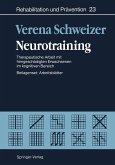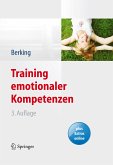The elegant, accessible coverage ranges from early psychological critiques of religion and responses from major religious thinkers to positivist and constructivist philosophies; from Jung's archetypes to neurobiological research into the religious brain; from scientific constructs of prayer, meditation, and mindfulness to collaborative interventions for mental health. The book's distinctive teaching/learning presentation:
- Discusses non-Western religious traditions in addition to Christianity.
- Balances theoretical literature with empirical research on each topic.
- Reviews contemporary research and debates in psychology and religion.
- Examines developmental approaches to religious and spiritual growth.
- Provides a variety of practical applications.
- Includes review questions, exercises, and other student materials.
- Encourages readers to develop their own ideas on this subject
These are valuable perspectives for graduate or undergraduate courses in the psychology of religion, and a rich resource for graduate courses in psychology and counseling. In addition, Psychology, Religion, and Spirituality makes an inviting text for seminary courses in spiritual and pastoral counseling.
Dieser Download kann aus rechtlichen Gründen nur mit Rechnungsadresse in A, B, BG, CY, CZ, D, DK, EW, E, FIN, F, GR, HR, H, IRL, I, LT, L, LR, M, NL, PL, P, R, S, SLO, SK ausgeliefert werden.
"James Nelson's book ... is explicitly offered in the tradition of dialogue. ... The great strength of this book lies in the impressive array of topics it covers ... . those interested in delving further into a particular topic will surely welcome this surfeit of citations ... . Nelson's postmodern and pluralistic perspective, and the final emphasis on practical applications will ... make it attractive for potential adoption as a textbook in courses on psychology and religion, especially when a religion-friendly approach is desired." (David M. Wulff, PsycCRITIQUES, Vol. 54 (39), 2009)
"The book ... will be a valuable resource for graduate students taking courses in the psychology of religion. Counseling professionals, especially those in spiritual and pastoral counseling, theologians, and religious practitioners and others taking seminary courses will find this book to be beneficial and enlightening. ... This book is alone in offering a rich, in-depth, and fascinating dialog among psychologists, theologians, and religious practitioners on the fundamental questions of human existence and our place in the world. ... will serve academics and counseling practitioners well." (Michael S. Goldsby, Doody's Review Service, January, 2010)
"Das Gespräch zwischen Psychologie und Theologie wird in den USA viel ernsthafter als in Europa geführt. Dieser intensive Dialog wirkt sich besonders fruchtbar auf die Zusammenarbeit zwischen Psychotherapie und Seelsorge aus. Wer davon einen frischen Eindruck bekommen möchte, ist mit Nelsons Lehrbuch bestens bedient. Keine Angst, es ist hierzulande einfach und schnell verfügbar, didaktisch anschaulich aufbereitet und verständlich formuliert. ... ein professionell aufbereitetes Handbuch (mit ausführlichern Glossar!), das die aktuellen Themen, eine Überfülle empirischer Studien und maßgebliche Trends ... griffig darstellt ..." (Dr. Michael Utsch, in: P&S Magazin für Psychotherapie und Seelsorge, May/2010, Issue 2, S. 53)

